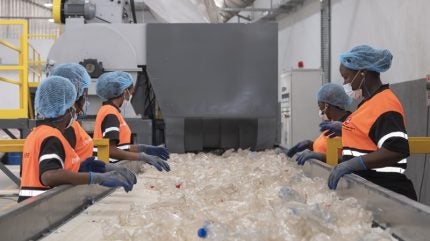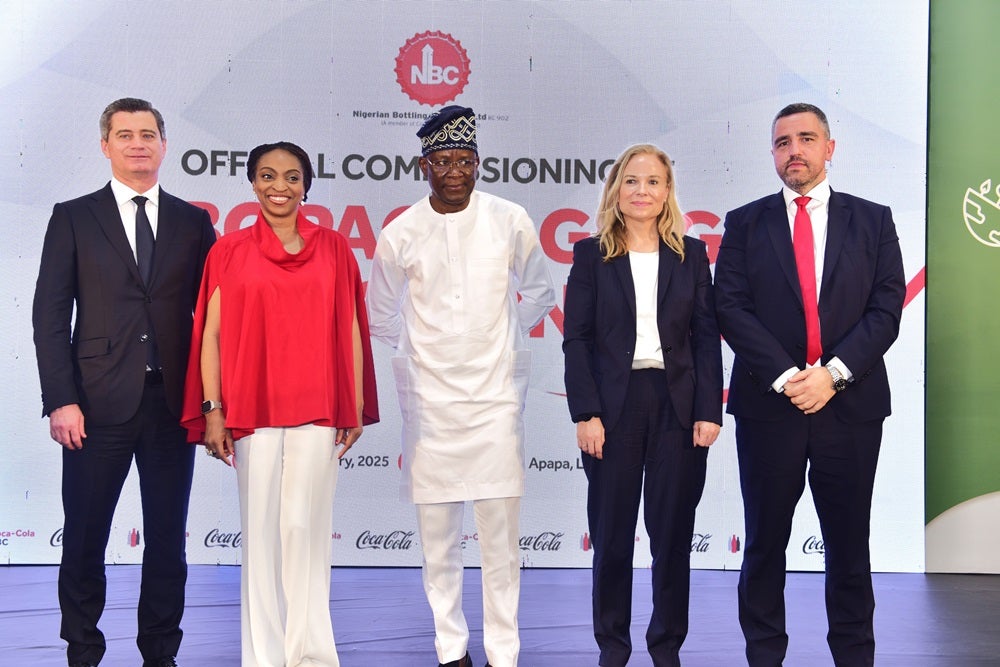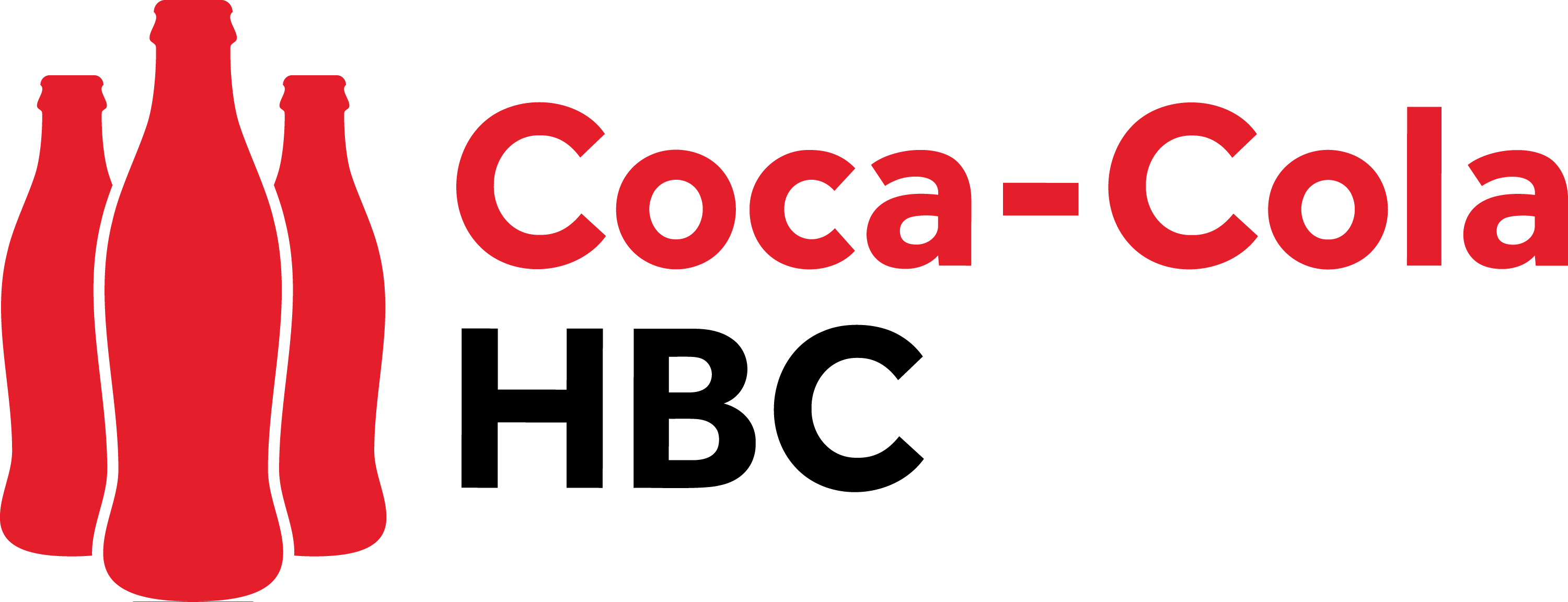
A new state-of-the-art packaging collection hub in Apapa, near Lagos, is helping contribute to cleaner communities and driving collective action to help reduce packaging waste – as well as creating local jobs.
It’s owned and operated by the Coca-Cola System in Nigeria, which comprises Coca-Cola Nigeria Limited and Coca-Cola HBC Nigeria, operating locally as the Nigerian Bottling Company (NBC).
This landmark initiative in Nigeria’s plastics recycling infrastructure aims to serve as a comprehensive solution for plastic waste management. The hub in Apapa will support the collection of up to 13,000 metric tonnes (MT) of plastic bottles for recycling each year – the equivalent of 500 million plastic bottles – when it is fully scaled.
So how does the approach in Nigeria differ and why is it innovative?
By reducing packaging waste in the environment and creating jobs, this approach unlocks both social and economic value.
“This joint initiative shows what you can achieve when you think like an entrepreneur, collaborate with your partners, invest in an idea, and take action,” explains Marcel Martin, Coca-Cola HBC’s Chief Corporate Affairs and Sustainability Officer.
“While manufacturing and selling drinks is our core business, our team in Nigeria has shown that there are opportunities right across our value chain that can support sustainability priorities and make our business stronger at the same time.”
It is expected that the new hub will create jobs for over 1,000 people, in addition to 70 green entrepreneurs who run aggregation hubs along the waste management and recycling value chain.
The company also continues to work with governments and other stakeholders in Nigeria and Egypt to support the establishment of locally relevant approaches to Extended Producer Responsibility.
Reducing packaging waste
Each day, trucks loaded with materials from homes, markets, and other public places arrive at the hub to be sorted and compressed into clean bales of post-consumer plastic bottles. These are sold to partner recyclers who use them to produce recycled plastic (rPET) which, in turn, is used to manufacture new plastic bottles.
The newly established Packaging Collection Hub reinforces the Coca-Cola System’s legacy of investment in Nigeria and supports its long-term objectives of expanding the network of recycling centres and producing food-grade recycled PET, reducing dependence on imported virgin materials.
It’s an important step for the Coca-Cola System, which has contributed over $1.5 billion to Nigeria’s economic value chain in the last ten years, empowering communities, driving economic growth, and advancing sustainability.
The System recently announced plans to more than double its investment rate over the next five years, committing a further $1 billion to build on these efforts. This new hub reinforces the Coca-Cola System’s legacy of investment in Nigeria.
Speaking at the commissioning of the hub in January 2025, Zoran Bogdanovic, Chief Executive Officer of Coca-Cola HBC, highlighted the company’s strategic vision:
“This facility represents a significant milestone in our journey of reducing waste by collecting and recycling our packaging in Nigeria. By investing in the hub, we are supporting local communities and creating jobs, as well as demonstrating our commitment to building a more sustainable future in a country that is integral to the success of our business.
“We are proud to partner with the Nigerian Government in addressing the critical challenge of waste management while fostering economic growth.”
Working towards the goal of being net zero by 2040
In 2024, Coca-Cola HBC was ranked as the world’s most sustainable beverage company for the eighth time by the Dow Jones Best-in-Class Indices.
The company’s approach in Nigeria is a crucial part of its clear and ambitious sustainability strategy.
“Our focus on recycling and collection helps reduce both our carbon emissions and packaging waste in the environment,” explains Marcel.
“It is vital that we work in different ways to suit local needs, working with local stakeholders such as governments, retailers, suppliers and other manufacturers. For example, in Europe we are taking a leading role in setting up Deposit Return Schemes (DRS) in several countries by being shareholders of the administrative bodies that operate them. Nine of our markets now have DRS in place, with two more expected in 2025 and up to 10 more anticipated in 2026-2028. We are building our in-house capabilities and infrastructure to produce rPET in markets including Romania and Italy.”
While DRS is an effective tool to accelerate collection in many countries, it is not the only solution. For example, in Switzerland, very high PET collection rates (over 80%) are already being achieved nationally without a DRS.
Marcel adds: “We are evolving our business model across our markets to deliver growth, take a strategic approach to sustainability and open up a more sustainable future.”



